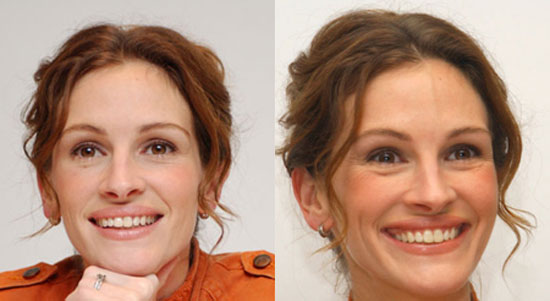
Actor Deepika Padukone displays a more heartfelt smile on the right. Photo: Creativei | Dreamstime.com
Smile, and the world smiles with you, cry and you cry alone, a saying goes. Research shows it’s true. It seems that people are more adept at picking up positive emotions in others, and they are more receptive to making friends with people who radiate positivity. On the other hand, if someone is faking happiness, or even showing sadness, they won’t get much love.
A study led by Belinda Campos of the University of California, Irvine, in the US, explores how relationships are formed and maintained. The findings are published in the journal Motivation and Emotion. The researchers hypothesized that when a stranger shows positive emotions, others react by being more open to a new relationship. In the experiment, researchers asked women to watch very emotional film clips designed to evoke happiness or sadness, either alone, in the company of their roommate or along with a stranger. The participants’ were video recorded as they watched, and the emotions they displayed were transcribed by trained observers. Particpants also filled out questionnairs describing their emotions.

The actor Julia Roberts shows a more genuine smile on the right.
When a stranger showed sadness, it did not evoke closeness in the other participant. This is somewhat surprising, since one may have expected that an expression of sadness in others would evoke a desire to comfort. Additionally, even if the other person felt happy and positive, but did not show it, then that did not evoke a feeling of closeness in a participant.
“Our findings provide new evidence of the significance of positive emotions in social settings and highlight the role that positive emotions display in the development of new social connections. People are highly attuned to the positive emotions of others and can be more attuned to others’ positive emotions than negative emotions,” says Campos.
So the next time you are in a social setting and want to make friends, SMILE!
We want to be your friend. Please like FamiLife’s page on Facebook. Before you go, share your thoughts, leave a comment below.
